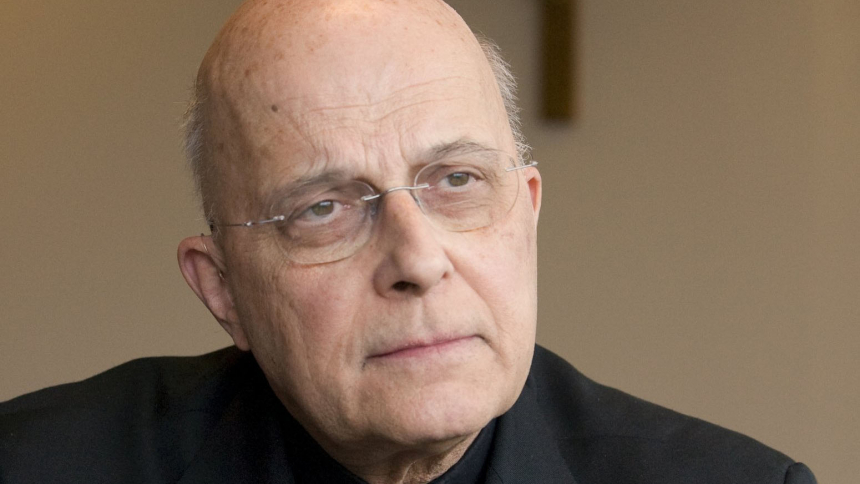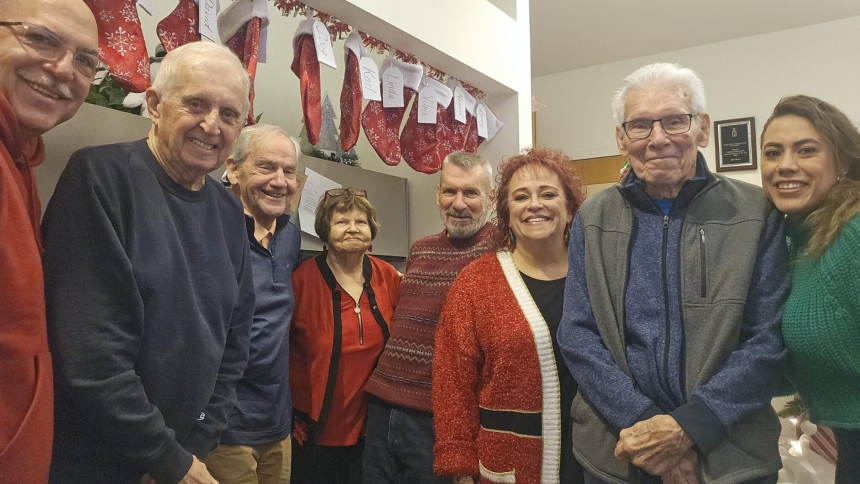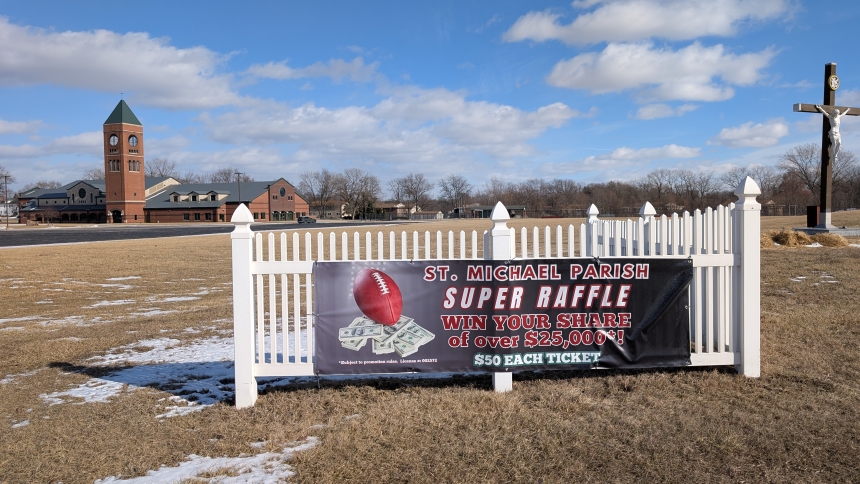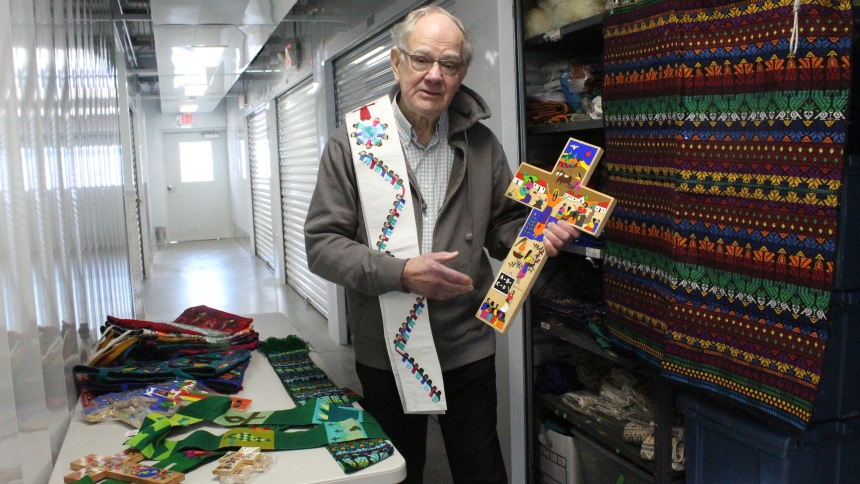
WASHINGTON (OSV News) - The defining trait of Chicago Cardinal Francis E. George (1937-2015), recalled with great affection at The Catholic University of America Sept. 14, was the physical pain that marked his life and following Jesus Christ.
The cardinal was never without pain after the polio that forced him into a leg brace at age 13 in 1950, and later from the two bouts with cancer that lead to his death in 2015.
Decades of pain many times corrode and embitter personalities. But Cardinal George instead developed the discipline to focus on his intellect and develop into a gentle, compassionate force who refused to have his defenses of Catholic orthodoxy pigeonholed into political categories.
As a result of the polio, Cardinal George "turned to the cross as a way of making sense of what was happening," said his biographer, Michael Heinlein.
"I think his life truly was an offering, and that's why he continued to push himself every day, because it wasn't about him," he said.
Memories flowed easily at a discussion for Heinlein's biography, "Glorifying Christ: The Life of Cardinal Francis E. George, O.M.I.," published by OSV (the parent company of the OSV News wire service). Heinlein is editor of OSV's Simply Catholic and the former editor of The Catholic Answer magazine. The Sept. 14 event was sponsored by the university's Institute for Human Ecology.
Archbishop of Chicago from 1997 to 2014, president of the U.S. Conference of Catholic Bishops from 2007-2010, and sometime shepherd of the Archdiocese of Portland, Oregon, and Diocese of Yakima, Washington, Cardinal George was defined by "his humility," his "beautiful mind" and a sincere quest to learn about people, said Los Angeles Archbishop José H. Gomez.
"My understanding is that he was surprised when he was appointed (Yakima's) bishop," said Archbishop Gomez, who first met Cardinal George in the early 1990s. At the same time, with Yakima's large Hispanic population, then-Bishop George learned Spanish and was "eager to learn" about Hispanic Catholics in the United States.
That love of learning could express itself in unusual ways, said Mary FioRito, Cardinal George's former assistant and the Cardinal Francis George Fellow at the Washington-based Ethics and Public Policy Center. When the city of Chicago asked prominent locals to name their favorite books as part of a reading promotion, FioRito said he thought for a moment and announced, "Oh, yes! The encyclopedia!"
She replied, "It's 2012 - you can't get those anymore." She had to come up with another book for him.
Denied entry into a seminary because of his limp, Cardinal George joined a missionary order, the Oblates of Mary Immaculate, and his work as a missionary opened his eyes to the reality of poverty around the world. FioRito said he often complained, "We didn't know what real poverty was in the United States."
She also said Cardinal George had "a sense that he was completely in God's hands" and was stunned at his first episcopal appointment, since "at that time, (religious) order priests were not named bishops. Only diocesan priests."
Heinlein recalled the cardinal's favorite saying: "Life is not a self-directed project but a consistent response to those you love."
Cardinal George's Midwestern bluntness came to the fore as the darkness of the clergy sexual abuse scandal began to emerge.
"He was a bit ahead of his time," Heinlein observed. "He put a layman in charge of the (archdiocesan) investigation in 2001. This was unheard of."
He said the cardinal once responded angrily to an official in the Roman Curia who thought the abuse crisis was only an American problem.
Cardinal George resisted labels on his theological thinking. When first made archbishop of Chicago, he was asked whether he thought of himself as liberal or conservative. He responded, "The Catholic faith is not liberal or conservative. The Catholic faith is true and I will preach that."
"He saw Catholicism in all of its facets," Heinlein said, but qualified that for the cardinal, "in his mind, liberal Catholicism was an exhausted project."
Archbishop Gomez called Cardinal George "an amazing example of how to be a bishop," with a combination of having sound theology and a "very articulate" way of speaking that made an impression on him.
"For me, in dealing with my brother bishops, it's important to listen to each other, to be humble," he said.
Caption: Cardinal Francis E. George of Chicago, who died April 17, 2015, is pictured during a 2010 interview in Washington. A Sept. 14, 2023, panel at The Catholic University of America in Washington examined the cardinal's life and legacy with biographer Michael Heinlein, Los Angeles Archbishop José H. Gomez and Mary FioRito, attorney and former executive assistant to Cardinal George. (OSV News photo/CNS file, Bob Roller)



